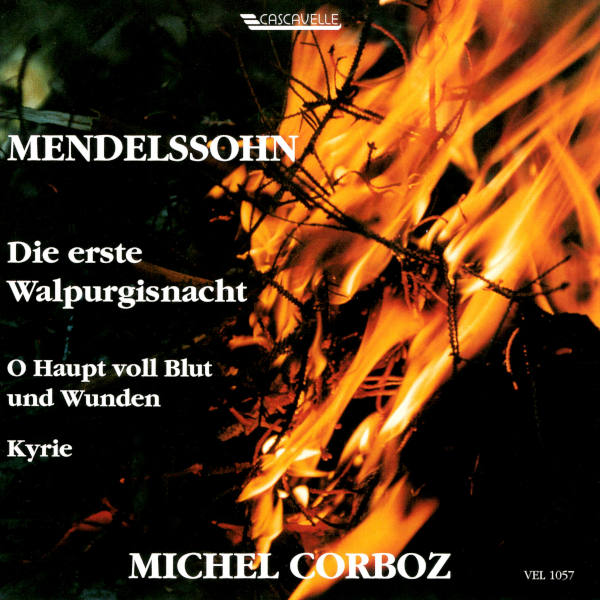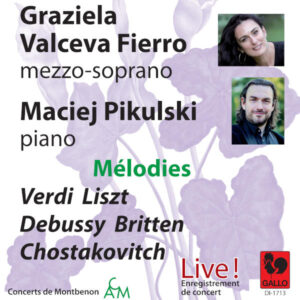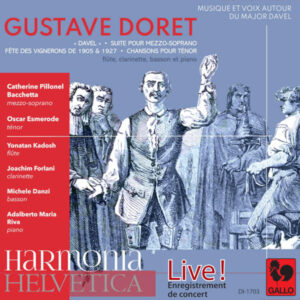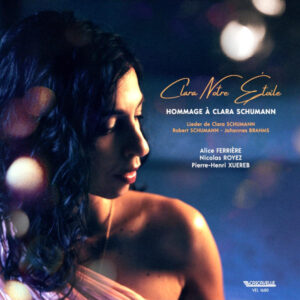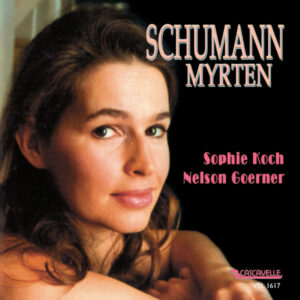Extraits / Excerpts
Mendelssohn: Die erste Walpurgisnacht, Op. 60 - O Haupt voll Blut und Wunden - Kyrie in C Minor - Ensemble Vocal et Instrumental de Lausanne, Michel Corboz
Felix MENDELSSOHN: Die erste Walpurgisnacht, Op. 60, MWV D 3: Ouvertüre. Das schlechte Wetter – No. 1 Es lacht der Mai – No. 2 Könnt ihr so verwegen handeln? – No. 3 Wer Opfer heut zu bringen scheut – No. 4 Verteilt euch hier – No. 5 Diese dumpfen Pfaffenchristen – No. 6 Kommt mit Zacken und mit Gabeln – No. 7 So weit gebracht, dass wir bei Nacht – No. 8 Hilf, ach hilf mir, Kriegsgeselle! – No. 9 Die Flamme reinigt sich vom Rauch – O Haupt voll Blut und Wunden, MWV A 8: I. Chor “O Haupt voll Blut und Wunden” – II. Aria “Du dessen Todeswunden” – III. Choral “Ich will hier bei dir Stehen” – Kyrie in C Minor, MWV A 3
Ensemble Vocal et Instrumental de Lausanne, Michel Corboz, Conductor.
There are two works by Goethe entitled Walpurgis Night, but the second is the more memorable. This one, which appears in Faust, describes rather conventionally the Romantic scene of a witches’ sabbath. Yet, as early as 1799, the poet used the setting of Pagan midnight revelry to oppose two irreconcilable schools of thought in stormy upheaval.
We all know the use that Romantic musicians made throughout the 19th century of the images given to them by the second Faust. However, the first Walpurgis Night remained practically ignored. Only Carl Friedrich Zelter, a personal friend of Goethe and his musical adviser, had attempted a musical translation of the poem in 1799. He kept the piece among his papers for over 15 years before admitting that the task was beyond his powers of imagination.
The same Zelter was responsible for introducing Mendelssohn, then 12 years of age, to Goethe, who was 60 years his senior. Goethe, an Olympian figure molded by the years and his own glory, understood little of music as Beethoven and Schubert wrote it. From an early age, he had kept a certain respect and admiration for the clarity and balance of Mozart’s melodies. In this child-prodigy, a young boy from a distinguished Berlin family, Goethe liked to see the echo of music that brought to life again the ideals of his own youth.
It is difficult to speak of a collaboration between the two of them. The first important piece by Mendelssohn inspired by one of Goethe’s works is the overture Meeresstille und Glückliche Fahrt, which was not revealed to the public until the year in which Goethe died. Besides, it is doubtful that the latter would have really appreciated a composition that paid unequivocal obedience to Beethoven. Nor would he have been more at ease with the score for the First Walpurgis Night. In this work, one in which the orchestra and voices are closely mingled, Mendelssohn did not entirely respect the poet-philosopher’s thinking. Carried away by his “penchant for witches”, Mendelssohn was only remotely interested in the deeper thoughts at the heart of the 1799 text, the permanent conflict between the instinctive forces of Nature and the rational clarity of a world according to enlightened understanding. Preferring a more frankly Romantic aspect of his subject, Mendelssohn remained at the level of a descriptive poem, and invites the listener to hear the feverish whirling of a night of storms.
However, the score, completed in its first form as early as 1832, underwent major changes before its first public performance in 1842. Goethe was never to hear the destiny reserved for his verse, to which the musical version gives a most endearing youthful impetus. Here, Mendelssohn reveals himself to be a great Romantic poet. He uses a sumptuous orchestral palette, causing the horns to burst out from behind a silky screen of strings, and giving the woodwinds a quite personal voice of their own. The choral passages are treated with a simplicity that at times gives them the dignity of popular songs, while the soloists are attributed arias on a grand scale. All the riches of Romantic opera are united in this illustration of a poem which we are invited to read in the light of scenes of Shakespearean magic.
The Druids’ chorus (No. 6 in the score) is illuminated by a fantasia that would not be heard again before the elderly Verdi brought life to it in the last act of his opera Falstaff. It is strange that the same musician in whom Goethe appreciated a certain old-fashioned quality reminding him of his own youth, should here show himself to be one of the prophets of 19th-century music, a solid relay between Beethoven and the great rhapsodies of Brahms.
Jean-Francois Labie
Translated by Stuart Walters
- Categories
- Composers
- Interprets
- Booklet
